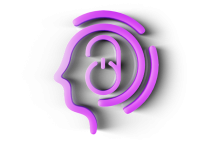Communications Commission: The Georgian Public Broadcaster, Rustavi 2 and Adjara TV Maintained High Standards during the Coverage of the Pre-Election Period, while Imedi, Mtavari Arkhi and TV Pirveli Showed Political Bias

The Communications Commission is publishing the second media monitoring report for the pre-election period of the Georgian parliamentary elections, consisting of qualitative and quantitative assessment of the activities of broadcasters. Monitoring was carried out from 1 October until and including 31 October. Six national broadcasters were monitored during the prime time period between 19:00 and 00:00 each day. Qualitative monitoring applied to the First Channel of the Georgian Public Broadcaster, Rustavi-2, Teleimedi, TV Pirveli and Mtavari Arkhi, while quantitative monitoring applied to around 50 broadcasting channels.
The six general broadcasters that were subject to qualitative monitoring were assessed by the following broadcasting standards: balance, accuracy, relevance, omission of important information, hate speech, misinformation, discrimination and manipulation of visual/audio materials. Media monitoring revealed that news programmes broadcasted by the Georgian Public Broadcaster (GPB) were largely balanced and complied with journalistic ethical standards. Balance and journalistic standards were also maintained by Adjara TV of the Georgian Public Broadcaster and Rustavi 2. Bias towards various political parties was evident in the cases of Teleimedi, TV Pirveli and Mtavari Arkhi.
As was the case in September, media monitoring carried out in October found Imedi TV to be conducting highly positive coverage of the governing party’s activities, while the opposition was receiving extremely negative coverage. The opposite was the case on Mtavari Arkhi and TV Pirveli, where opposition activities received favourable coverage, while the actions of the government were presented in a highly negative light. News reports and political programmes on the latter two channels violated journalistic standards and were saturated with hate speech. Programmes shown on TV Pirveli and Mtavari Arkhi often contained misleading, fake information and unsubstantiated accusations. Obscene language was frequently heard on Mtavari Arkhi. Interviewees on Imedi TV used hate speech without being challenged by the presenters.
With regards to the main findings and analysis, media monitoring results showed that the news programmes of the Georgian Public Broadcaster delivered verified and factual information. Ethical and professional were maintained, and no cases of misinformation or manipulation were identified. Balance was also maintained, allowing viewers to hear several different opinions on the issue. GPB gave each electoral subject an equal opportunity to participate in debates, although some parties did not take advantage of this offer. Presenters of political programmes did not show bias towards any political party. Time on the news programmes was allotted as follows: Georgian Dream – 19.2% (positive – 33%, negative – 17%), Government of Georgia – 15.6% (positive – 16%, negative – 5%), United Opposition “Strength is in Unity” – 13.6% (positive – 13%, negative – 26%), all other subjects – less than 10%.
The main news programme of Adjara TV of the Georgian Public Broadcaster was largely diverse and balanced in terms of opinions and guests. Viewers had the opportunity to hear the positions of different parties on political and social issues. Presenters of political programmes asked critical questions while avoiding discriminatory remarks and hate speech. Time on the news programmes was allotted as follows: Georgian Dream – 20.7% (positive – 41%, negative – 26%), United Opposition “Strength is in Unity” – 13.7% (positive – 18%, negative – 31%), Government of Georgia – 12% (positive – 23%, negative – 8%), Government of Adjara – 11% (positive – 20%, negative – 29%), all other subjects – less than 10%.
The news programmes and political shows of Imedi TV demonstrated a positive attitude towards the government and the governing party. Conversely, the broadcaster’s coverage of the United Opposition parties was negative and often lacked balance. Interviewees used hate speech without being appropriately challenged by the presenters. Imedi TV did not broadcast any debates. Time on the news programmes was allotted as follows: Georgian Dream – 47.4% (positive – 64%, negative – 1%), Government of Georgia – 21.8% (positive – 33%, negative – 2%), United Opposition “Strength is in Unity” – 17.5% (positive – 0%, negative – 84%), all other subjects – less than 10%.
Rustavi 2’s coverage of the activities of electoral subjects was largely neutral, balanced and compliant with ethical standards. Political programmes afforded the parties the opportunity to present their pre-election programmes. Presenters asked relevant questions, allowing viewers to receive broad information about the pre-election programmes, as well as the methods and resources through which the programmes were to be implemented. Presenters distanced themselves from any discriminatory remarks made by their guests and maintained a critical approach towards the opposition and the governing party alike. Time on the news programmes was allotted as follows: Georgian Dream – 31.1% (positive – 31%, negative – 12%), United Opposition “Strength is in Unity” – 15.8% (positive – 17%, negative – 17%), Government of Georgia – 13.2% (positive – 15%, negative – 5%), all other subjects – less than 10%.
The news programmes and political shows of TV Pirveli conducted biased coverage of pre-election campaigns of various electoral subjects. Government activities and the pre-election campaign of Georgian Dream received extremely negative coverage. Presenters tried to present their personal opinions as facts without substantiating their statements with evidence. The broadcaster continued to employ a selective approach towards the coverage of pre-election campaigns of different electoral subjects, denying viewers the opportunity to make an informed choice. Presenters of political programmes openly expressed their sympathies towards opposition candidates and used hate speech on several occasions. Time on the news programmes was allotted as follows: Georgian Dream – 37% (positive – 14%, negative – 49%), United Opposition “Strength is in Unity” – 19.6% (positive – 6%, negative – 22%), Government of Georgia – 18.9% (positive – 2%, negative – 38%), all other subjects – less than 10%.
Mtavari Arkhi broadcasted unverified information that was based on anonymous sources. Broadcasts contained manipulation, aggressive remarks, misleading and fake information, unsubstantiated accusations, as well as frequent violation of ethical norms, use of hate speech and obscene language by journalists. Programmes containing obscenities were shown on several occasions. Grave and unsubstantiated accusations were made against the government based on personal opinions of journalists or members of various political parties. Presenters and journalists displayed a subjective and biased attitude towards specific political leaders. Journalists did not shy away from using ironic and negative tone towards members of the governing party, civil servants and government officials. Time on the news programmes was allotted as follows: United Opposition “Strength is in Unity” – 42.2% (positive – 18%, negative – 1%), Georgian Dream – 28.9% (positive – 1%, negative – 66%), all other subjects – less than 10%.
Many of the violations identified during the monitoring process constitute grave breaches of the Code of Conduct for Broadcasters. Based on the current legislation, response measures for the violation of the aforementioned norms can only be carried out within the self-regulation mechanism of the broadcasters. Decisions made within the self-regulation mechanism cannot be appealed before the Communications Commission or in court.
With regards to the use of obscenities, which is prohibited under the Law of Georgia on Broadcasting, the Communications Commission is authorised to respond to this particular violation. The Commission will soon release a statement explaining to broadcasters their responsibility under law with regards to the use of obscenities in programmes or in advertising.
The Communications Commission conducted the media monitoring process in accordance with international standards. Monitors were trained by the Council of Europe media expert and Executive Director of the media monitoring organisation Memo 98, Rasto Kuzel.










